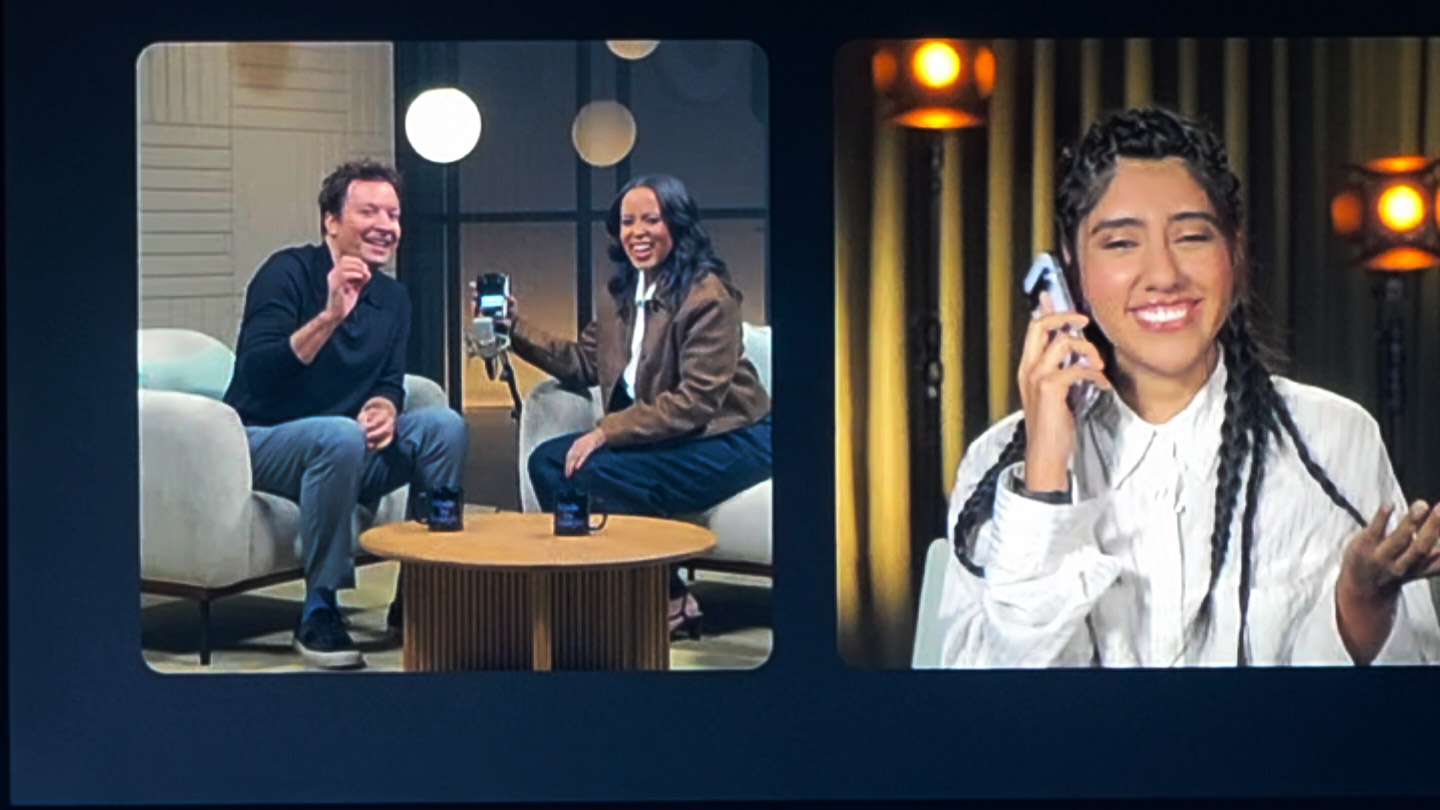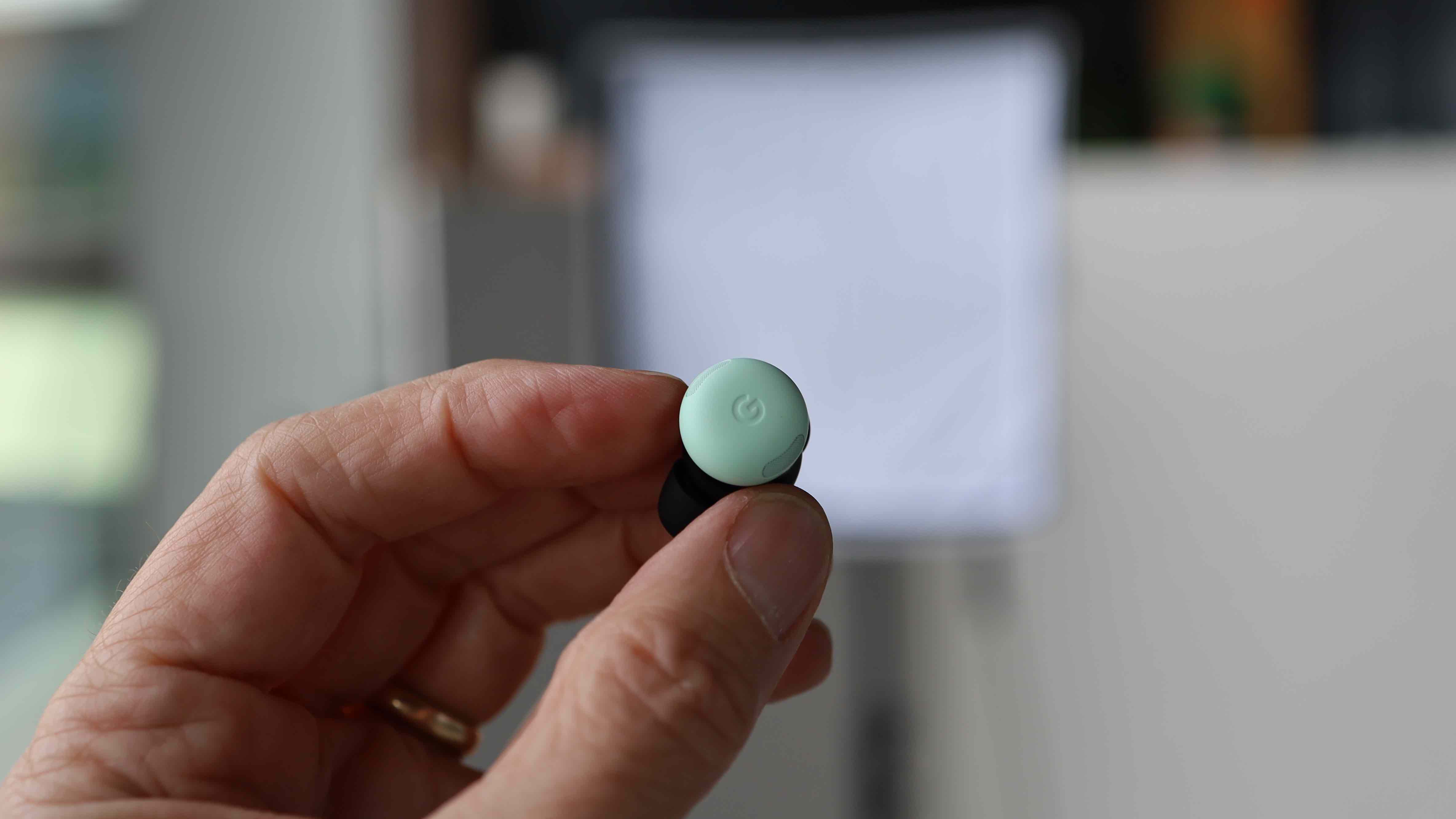Google's Real Time Voice Translation blew me away – now I think I want it for my wearable
This can't be contained

Sign up for breaking news, reviews, opinion, top tech deals, and more.
You are now subscribed
Your newsletter sign-up was successful
Ever since I tried out Google's Real Time Voice translation on a call between a pair of Google Pixel 10 Pro phones, I've been imagining a future where I can speak to anyone in any language in my own voice and we can instantly understand each other.
I'm not alone in my amazement. When Jimmy Fallon and YouTuber Karen Polinesia demonstrated the feature live during Made By Google 2025 on August 20, 2025, the late-night TV host was gobsmacked, giggling in astonishment as his distinctive voice delivered sentences in Spanish to someone on a Pixel 10 Pro phone in an undisclosed location.
I don't blame him. As I've said, this feature uses AI to re-create both callers' voices in another language, almost without any lag, which is the closest we've come to Star Trek's Universal Translator. But it is missing something.

You see, Google's Real Time Call Translation only works when you're calling someone on the Pixel 10 phone. What I really want is a more ambient experience.
I can't believe I'm writing this, but what we need is a piece of wearable hardware that's always listening and when it hears someone speaking to you in a language other than your native tongue, it starts interpeting on the fly and "speaking" those same words in your native launguage, while, of course using a voice that matches the speakers voice.
In Star Trek, the galaxy explorers would simply point the device at aliens, and their unintelligible languages would transform their voices into English. I know that's unlikely; however, I do have a vision of what I want.
I'm aware that Google has long had a translate feature with Pixel Buds (using Google Translate and Google Assistant), but it never worked like this and never used a simulacrum of the speaker's voice for the translation. As far as I'm concerned, the system doesn't work unless it includes this.
Sign up for breaking news, reviews, opinion, top tech deals, and more.
A wearable translator
In a perfect world, the system would be frictionless: on both speakers and always ready to transparently intercept, translate, and speak so that we don't have to call, tap, look up, or read.
In the real world, there would be some concessions to the current state of Google's mobile hardware ecosystem.
There are a few options. It could be a system that works on both the Pixel Watch and Pixel Buds (the watch translates and sends the voice to the buds) or the buds translate and deliver the voice on their own. Pixel Watch 4 and Pixel Buds (even the Pro models) lack the horsepower to handle the translation.
What's needed is another piece of hardware or a combination of wearable gadgets that can bring this ever-present live translation to life.
A hardware possibility

In general, I'm not a fan of dedicated AI hardware (see Rabbit R1 and Plaud.AI). Smartphones like the Pixel 10 Pro have all the generative AI we need, and a secondary device just to perform many of those same AI actions seems superfluous at best.
The Real Time Live Translation, however, has me thinking differently. Perhaps it's the combination of an enhanced Pixel Watch and Buds, but I'd prefer if the entire operation were housed in what we might call "Pixel Buds Pro Enhanced".

Inside would be a new Tensor Chip small enough to fit inside one of the buds yet powerful enough to perform local translation and voice generation. We know the software works, so why not build special hardware to support it?
I know that's a tall order. Tensor G5 is a 3nm process chip. Could this be a 2nm? Maybe. The goal would be to both shrink the AI (with its neural network) and lower the power consumption so that one translation doesn't eat up half the Pixel Bud Pro Enhanced's battery life.
This is the one AI wearable idea I can get behind. Just think of what travel to another country might be like if you were wearing one of these. I get that it's unlikely that the person you're talking to also has a pair, but if they can run Gemini Live on their phone or if they have a Pixel Watch, perhaps they can hear what you're saying in their language (and in your voice), too.
My point is, this feature is too powerful to be stuck inside a smartphone, and I hope Google is working right now to bring my Star Trek Universal Translator dreams to life.
You may also like

A 38-year industry veteran and award-winning journalist, Lance has covered technology since PCs were the size of suitcases and “on line” meant “waiting.” He’s a former Lifewire Editor-in-Chief, Mashable Editor-in-Chief, and, before that, Editor in Chief of PCMag.com and Senior Vice President of Content for Ziff Davis, Inc. He also wrote a popular, weekly tech column for Medium called The Upgrade.
Lance Ulanoff makes frequent appearances on national, international, and local news programs including Live with Kelly and Mark, the Today Show, Good Morning America, CNBC, CNN, and the BBC.
You must confirm your public display name before commenting
Please logout and then login again, you will then be prompted to enter your display name.